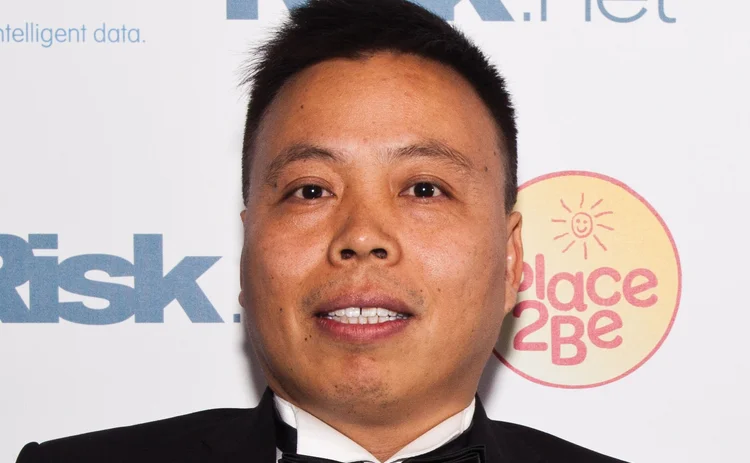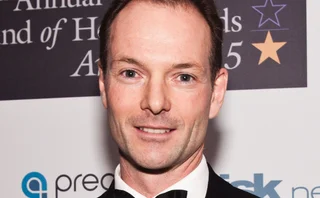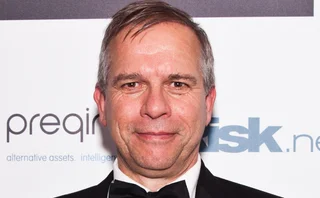
Best specialist FoHF under $500m over three years: Ayaltis Narrapuno Spectrum
Spectrum fund profits from exposure to credit via market-neutral equities

Hedge Funds Review European Fund of Hedge Funds Awards 2015
"Investors are behaving like deer in front of the headlights. They don't know where to go. They know that bonds are dangerous… They know that equities are erratic," says Ernesto Prado, chief investment officer at Ayaltis. The solution, he thinks, is exposure to the credit market through liquid, equity market-neutral positions.
The firm's Narrapuno Spectrum fund won best specialist fund of hedge funds (FoHF) under $500 million over three years at the Hedge Funds Review European Fund of Hedge Funds Awards. Prado describes the fund as "our best of class product", because it contains managers in whom Ayaltis has the highest conviction. It aims to give its investors absolute returns and offers quarterly liquidity.
Prado contrasts the present macro backdrop with that in the wake of the 2008 crisis. Then, investors had to commit to hold undervalued assets as the economy recovered. "Today is a very different cycle. All the deep value opportunities are no longer there," he says. Assets are now too highly priced, but he believes mispricing is rife.
Equities provide more opportunities for the FoHF than asset-backed securities and distressed bonds used to. Corporate bonds are too expensive and too many are investing in high-yield bonds that will soon prove "garbage", Prado says.
While others try to "squeeze basis points" from equities via momentum strategies, the Spectrum fund takes a contrary position. Prado illustrates this with two examples of equity managers that invest differently. Both depend on moments where central bankers lift the spirits of investors and trend-followers to the extent that equities become overvalued.
First is an event-driven passive activist fund – passive because it does not seek to pressure the company in the media or on shareholder boards. It shorts the stock of a cash-flow degenerative business when it appears overvalued; it then publishes a damning analysis of the firm's bad credit position and waits for a pricing correction. Small-cap equities are favoured over large caps, being easier to move.
The second is a systematic relative-value fund. It invests in a few thousand equities, long and short, in contrast to the event-driven fund, which invests in only a dozen or so. After a long market rally, it shorts companies with bad credit positions; after market jitters, it invests in cash-flow-generating companies at what it deems to be their nadir. The fund holds the positions until above share value.
The basis of both analyses is credit. With greater dispersion between equities than credit spreads, good and bad, the company gets its exposure to credit via equities.
"Generic macro managers who think they have a crystal ball are going to have their hands chopped," Prado says. Selecting good global macro funds requires "a lot of work, a lot of miles and a lot of expenses", he says half-gaily. Nonetheless opportunities abound, he thinks, particularly in the spreads between developed and emerging market debt.
"A small. positively correlated performance in 2016 will be worth gold. Why? Because China could have provoked a much more violent correction… we are in wealth-defending mode," he says. "This is not the year to be risking your house to outperform."
Only users who have a paid subscription or are part of a corporate subscription are able to print or copy content.
To access these options, along with all other subscription benefits, please contact info@risk.net or view our subscription options here: http://subscriptions.risk.net/subscribe
You are currently unable to print this content. Please contact info@risk.net to find out more.
You are currently unable to copy this content. Please contact info@risk.net to find out more.
Copyright Infopro Digital Limited. All rights reserved.
As outlined in our terms and conditions, https://www.infopro-digital.com/terms-and-conditions/subscriptions/ (point 2.4), printing is limited to a single copy.
If you would like to purchase additional rights please email info@risk.net
Copyright Infopro Digital Limited. All rights reserved.
You may share this content using our article tools. As outlined in our terms and conditions, https://www.infopro-digital.com/terms-and-conditions/subscriptions/ (clause 2.4), an Authorised User may only make one copy of the materials for their own personal use. You must also comply with the restrictions in clause 2.5.
If you would like to purchase additional rights please email info@risk.net
More on Fund of funds
FoHFs – shrinking without trace?
Funds of hedge funds are struggling to attract investment more than the funds they invest in
Funds of hedge funds look to focus and diversify both at once
Concentration on largest holdings has grown but average holding size has shrunk
Best bespoke FoHF provider: Amundi Alternative Investments
Clients want quick-moving funds as volatility creeps up, says Amundi
Best advisory team; Best HNWI/private client FoHF provider: Goldman Sachs Asset Management
AIMS' chief investment officer worries about a credit sell-off in 2016
Best seeder: Tages Capital
Tages offers new funds capital, advice and product ideas
Best managed accounts platform: Deutsche AWM
Deutsche AWM's platform has embraced arbitrage strategies that others have not
Best Ucits-compliant FoHF: Credit Suisse Prima Multi-Strategy Fund
Ucits funds still pose operational risks, says Credit Suisse
Best diversified FoHF over $500m: Axa All Weather
Axa avoids big hedge funds that leave footprints in illiquid markets







